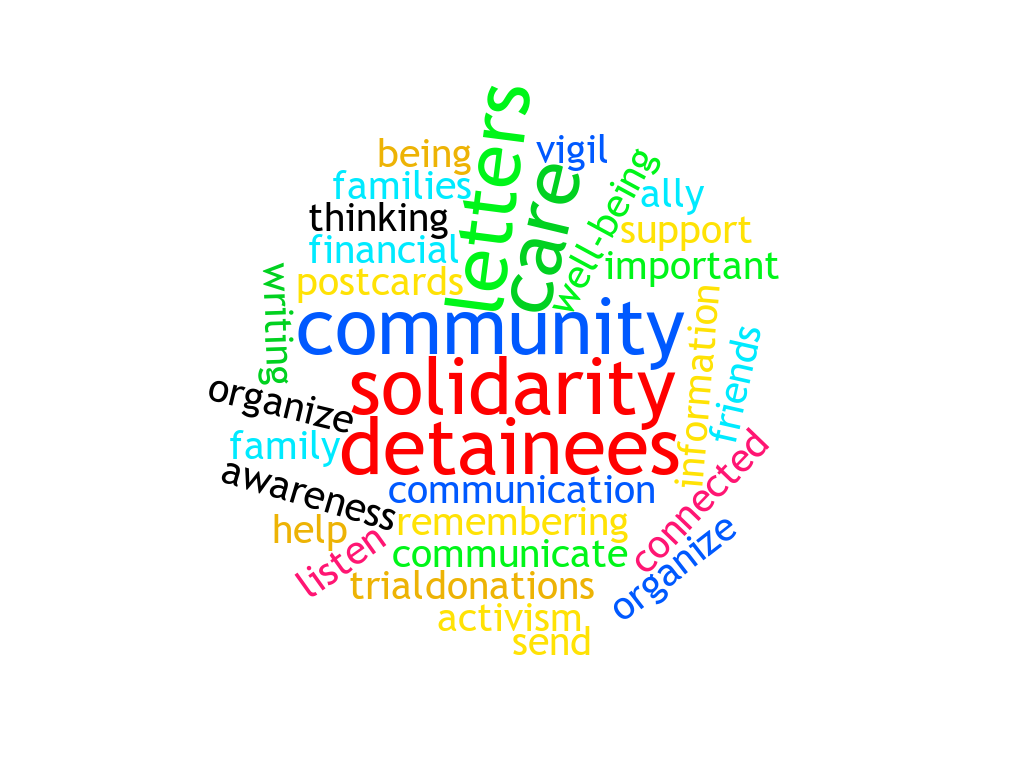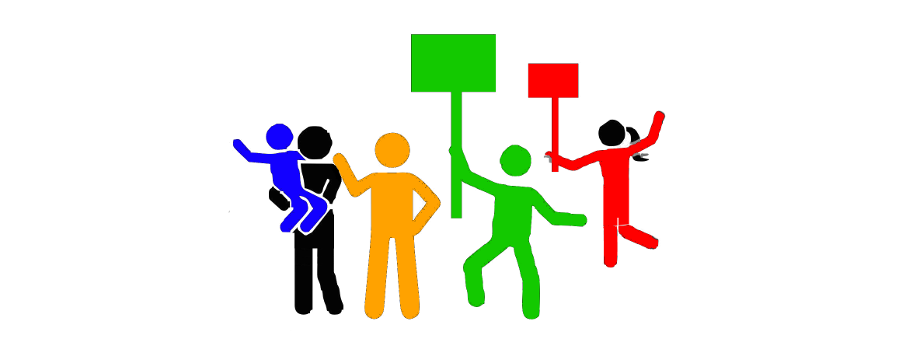
Supporters
How is this imprisonement of a friend or colleague affecting you? How can you balance support, care, and self-care? The detention might put you in the situation of supporting crisis work and/or the family in their everyday needs, but it also calls for making an effort to care for yourself.
In this section, the experiences, suggestions, and bullet points were written down by people who supported crisis management and families in this situation before. Some of them have a professional background in crisis management or human right's work, others don't. More pieces were added by family members who try to emphazise the kind of support they found helpful to receive.
Again, it is up to you, the reader, to pick what you find helpful and empowering and dismiss what does not feel like that. The experiences of family invite you to take their perspective and reflect your offers for support.
SELF-CARE
Experiences and reflections on self-care routines in situations of high level stress.
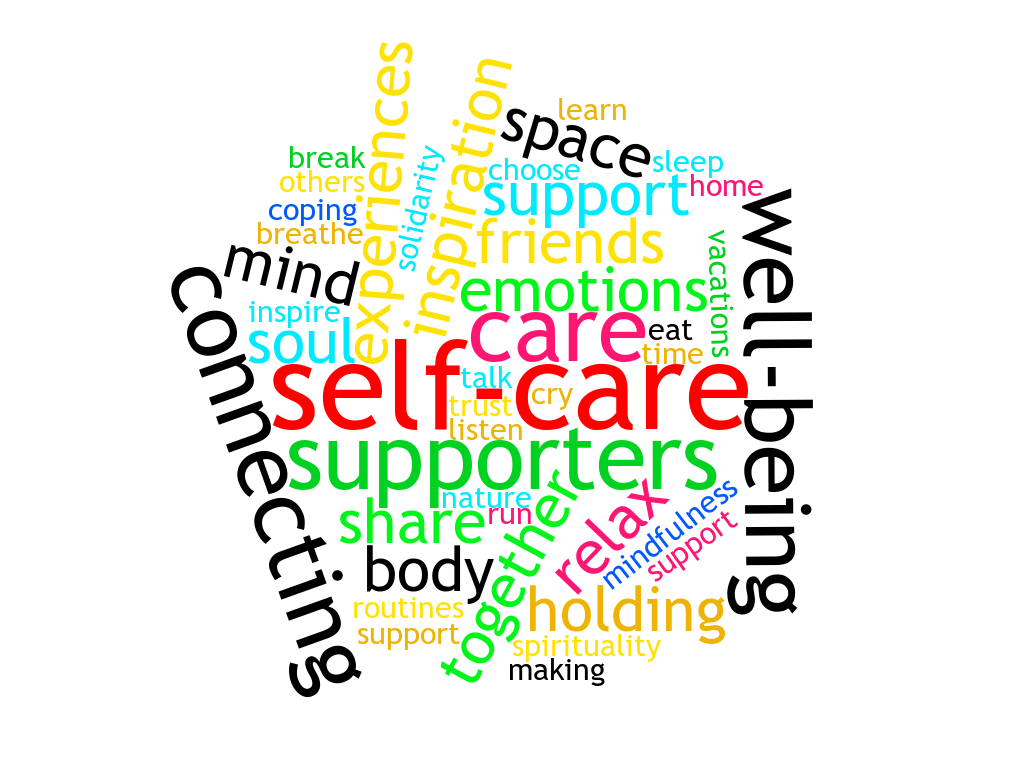
Caring For Your Body
Your body holds a lot in such times.
Caring For Your Body
Your body holds a lot in such times.
Physical Well-Being
Physical well-being is part of caring for one's own emotional well-being.
Emotional Care
What did you do in order to support your emotional well-being?
Dealing With Emotions
Making space for the diverse range of emotions helps to keep the balance.
ORGANIZING
Ideas and experiences on how to organize in prisoner's support.
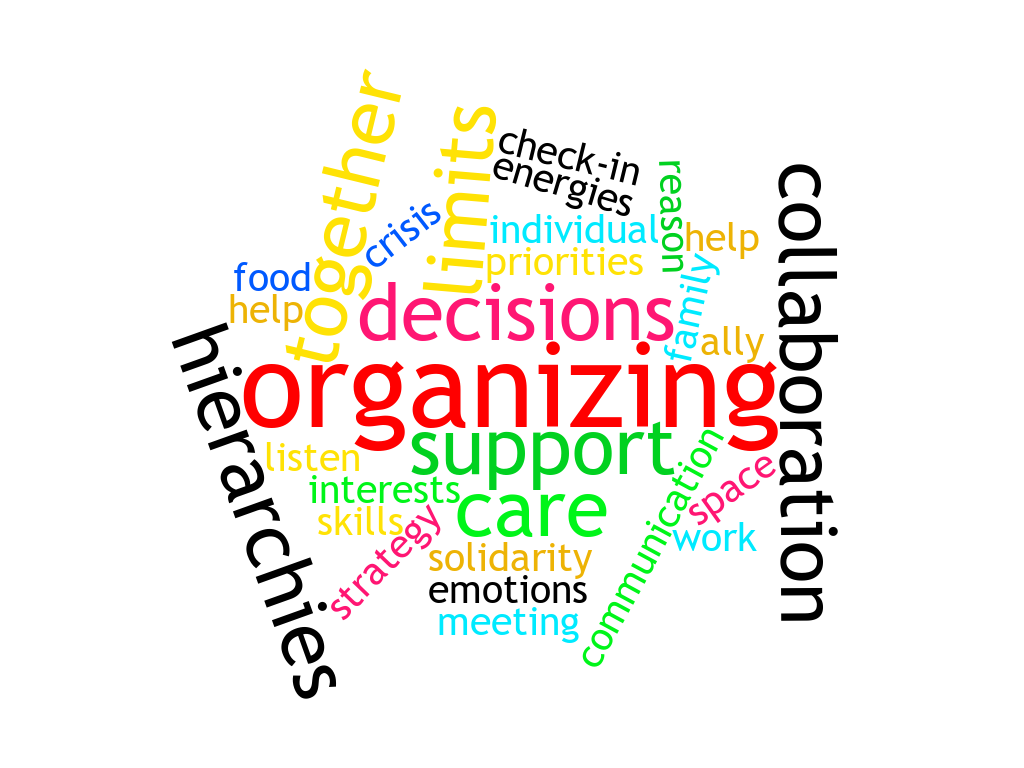
Functioning Where Needed
It is a gift to a support group if people are flexible in how and when to share their skills.
Putting Back One's Own Interests
On the relationship of crisis work and personal interest.
Stepping Back
To acknowledge individual limits might strenghten the crisis work.
Hierarchies
How to organize? What are your experiences?
Decision Making Processes
Crisis calls for a lot of decision making: how can this be done?
SUPPORTING FAMILIES
What might be helpful to consider concerning the support of families.
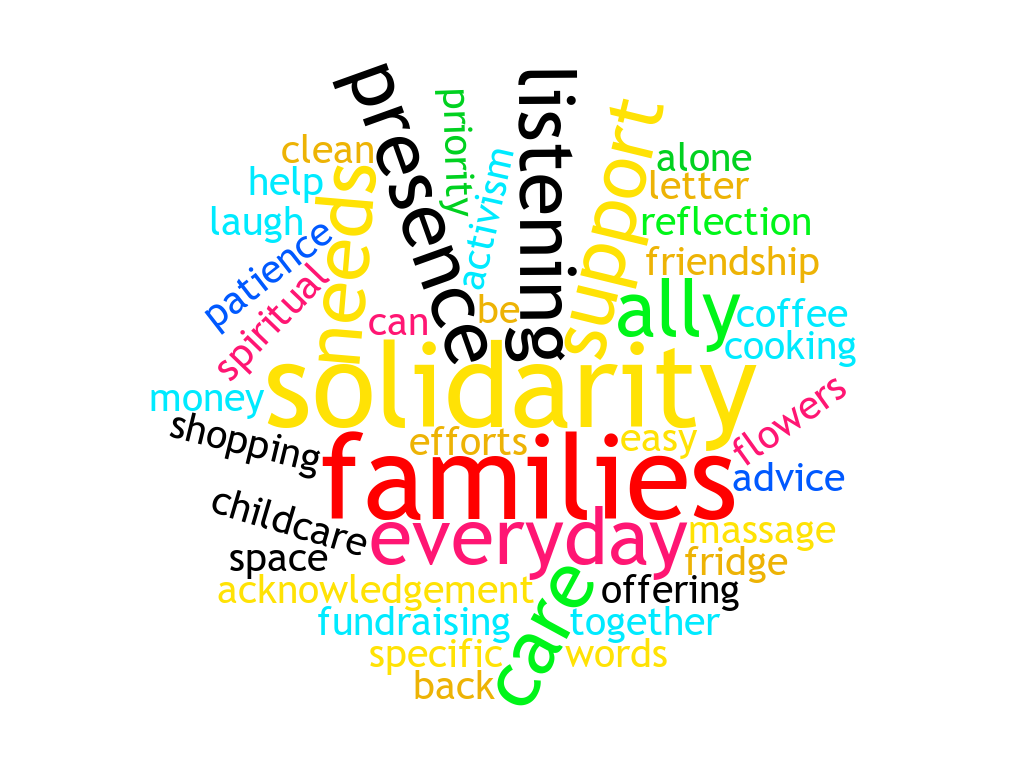
Offering Presence
Understanding my presence and support as an offer to accept or decline by the family.
Relationship With Families
Offering support, not imposing it.
Showing Solidarity
The families of political prisoners are heavily affected by the imprisonement, too. Include them in your solidarity.
3 Things To Support Family
Ideas on how to support family.
Little Signs Of Support
You don't have to look for the big actions of solidarity. Little things help, too.
Advice and Friendship
Supporting family can potentially mean: offering friendship.
Everyday Needs
Managing the crisis consumes a lot of time. And yet, daily life goes on, support in that is helpful.
Holding Space
Openly listening to what someone has to say, holding space for what needs to be said - this can be a very valuable contribution.
Focused Support
Listening to the needs of family, helping out where it's needed. Being there with the ressource you can offer.
Spiritual Support
Community support can be very helpful to family members to refill their energies.
Acknowledging Efforts
Invisibility or the feeling of not being seen can be a burden to family members. Acknowledging their efforts works against that.
SOLIDARITY FOR DETAINEES
Which acts of solidarity felt helpful to the prisoners?
